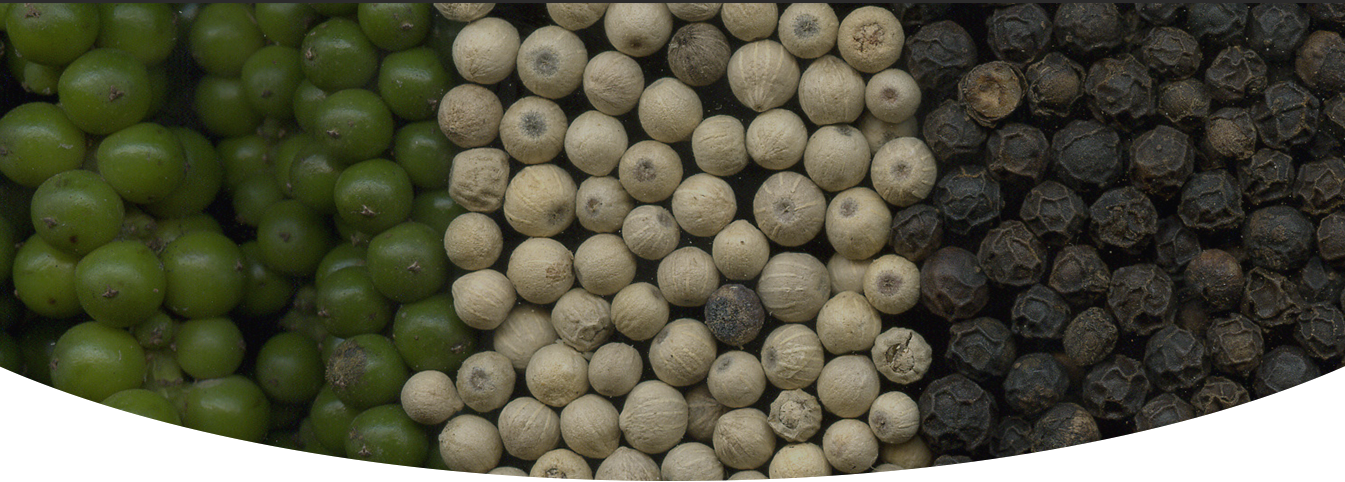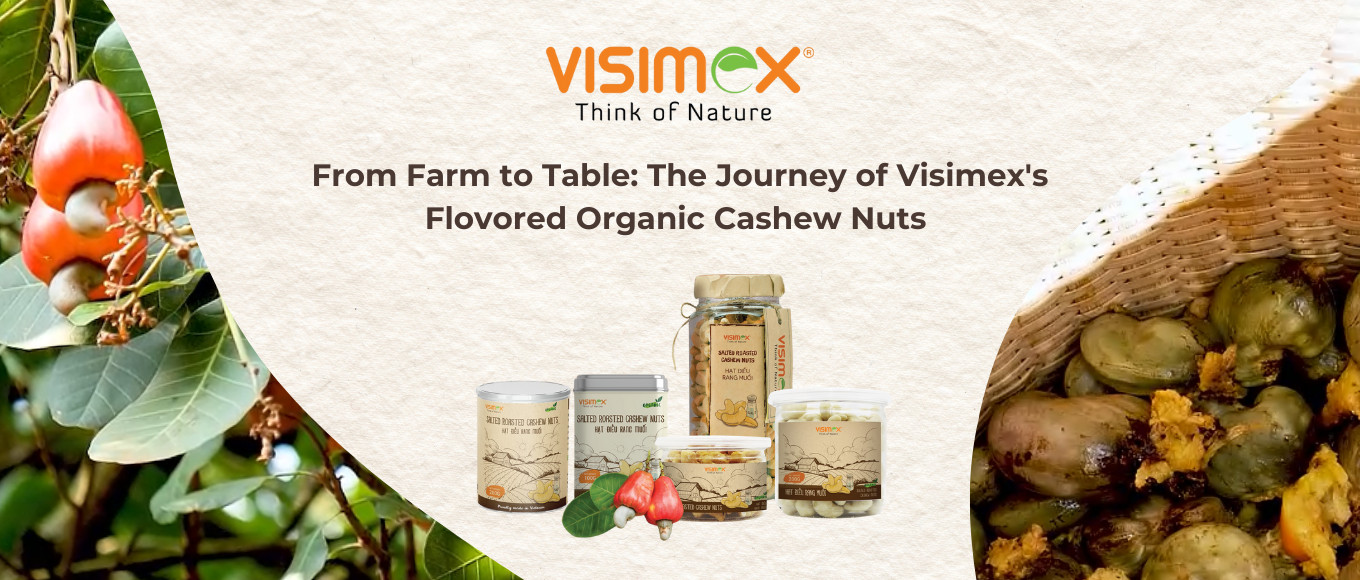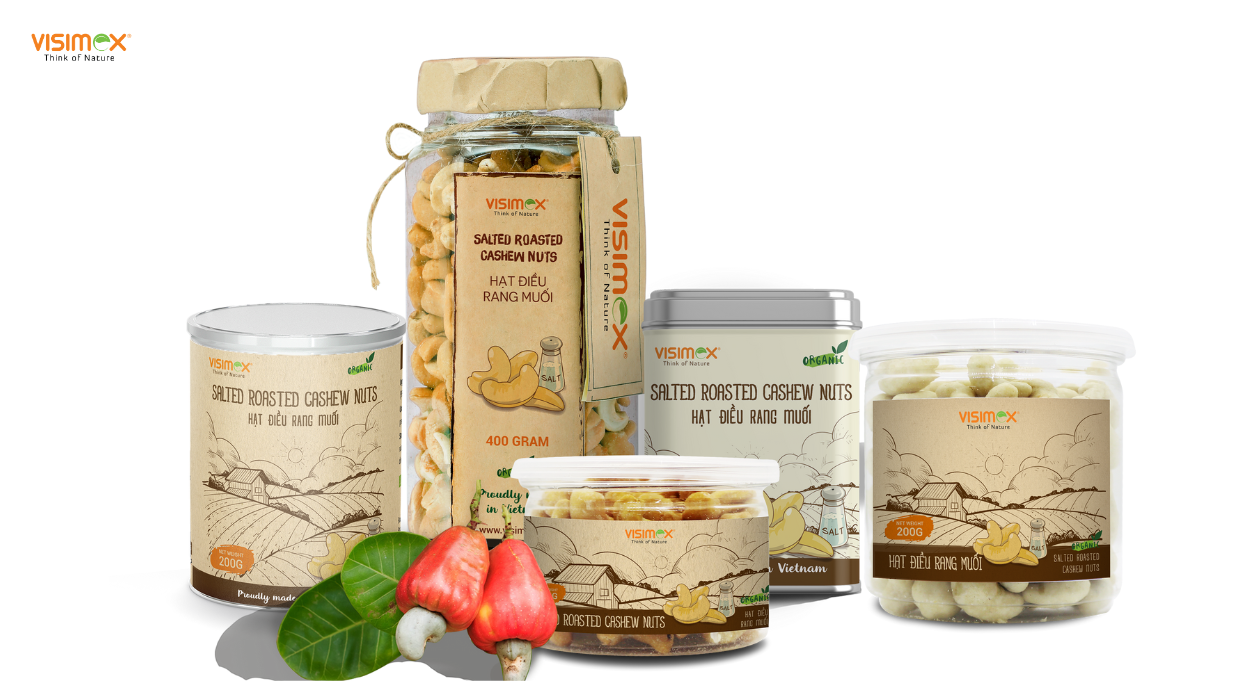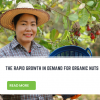Cashew farming plays a vital role in Vietnam’s agricultural landscape, contributing to both domestic consumption and export markets. In this article, we delve into the diverse regions of cashew farming in Vietnam, examine current trends in production, and explore the opportunities and challenges facing the industry.
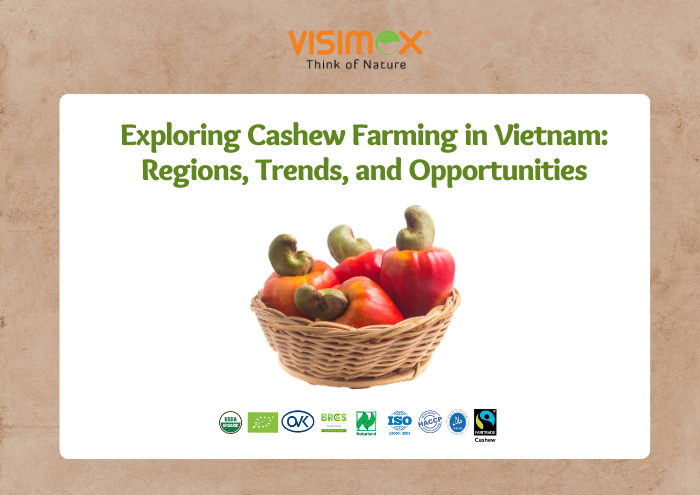
Cashew Farming Regions:
Vietnam boasts several key regions known for cashew cultivation, each with its unique characteristics and contributions to the industry.
- Southern Region: The southern provinces of Binh Phuoc, Dong Nai, and Ba Ria-Vung Tau are among the largest cashew farming areas in Vietnam. Binh Phuoc, in particular, is often referred to as the “cashew capital” of the country, accounting for a significant portion of cashew production.Binh Phuoc, the centre of the Vietnam cashew industry, has 179 000 hectares of cashew, among which 21.8 % are state owned and administered by the forest rangers, whereas the rest are small-sized farms owned by 77 600 farming households in the three districts of Bu Dang, Bu Gia Map and Phu Rieng.
- Central Highlands: The provinces of Dak Lak, Gia Lai, and Kon Tum are emerging as important cashew farming regions, with favourable soil and climate conditions conducive to cashew cultivation.
- Northern Region: While cashew farming is less prevalent in the northern provinces, some areas such as Son La and Dien Bien have started to explore cashew cultivation due to government initiatives and support.
Trends in Cashew Production:
In recent years, Vietnam has witnessed steady growth in cashew production, driven by increasing demand both domestically and internationally. The country has invested in modernising cashew farming practices, adopting advanced technologies, and improving infrastructure to enhance productivity and quality.
- Organic Farming: The trend towards organic cashew farming in Vietnam is gaining momentum due to increasing consumer awareness and demand for sustainably produced agricultural products. Consumers are becoming more conscious of the environmental and health impacts of conventional farming practices, such as the use of synthetic pesticides and fertilisers. As a result, there is a growing preference for organic cashews, which are cultivated without the use of synthetic chemicals.
Organic certification plays a crucial role in this trend by providing farmers with credibility and assurance that their products meet strict organic standards. Certification programs, such as those accredited by international bodies like the USDA or EU Organic, require farmers to adhere to specific guidelines regarding soil health, pest management, and environmental conservation. By obtaining organic certification, farmers can access premium markets that prioritise organic and sustainably produced goods, allowing them to command higher prices for their organic cashew nuts.
- Value-Added Processing: Value-added processing has emerged as a strategic focus within Vietnam’s cashew industry, supplementing the traditional export of raw cashew nuts with a range of processed products tailored to diverse consumer demands. This expansion into value-added processing reflects Vietnam’s commitment to enhancing its competitive edge in the global cashew market while meeting evolving consumer preferences.
One key aspect of value-added processing in the cashew industry is roasting, which transforms raw cashew nuts into roasted cashews, a popular snack enjoyed worldwide. Roasting not only enhances the flavour and aroma of cashews but also extends their shelf life, making them more appealing to consumers and facilitating distribution and storage.
Opportunities and Challenges:
While cashew farming presents significant opportunities for farmers and the economy, it also faces various challenges that require attention and strategic interventions.
- Climate Change: Vietnam’s cashew farming regions are susceptible to climate change impacts, including irregular rainfall patterns, droughts, and extreme temperatures, which can affect crop yields and quality.
- Market Access: Access to international markets is crucial for Vietnam’s cashew industry. Enhancing trade relations, complying with quality standards, and addressing market access barriers are essential for sustaining export growth and competitiveness.
Cashew farming is an integral part of Vietnam’s agricultural sector, contributing to rural livelihoods, economic development, and export earnings. By leveraging regional strengths, adopting sustainable practices, and addressing challenges, Vietnam can further enhance its position as a leading cashew producer and exporter on the global stage.
With a commitment to environmental stewardship and product excellence, Visimex has invested in state-of-the-art processing facilities and quality control measures to ensure that their organic cashew products meet the highest standards of quality and safety. Through value-added processing techniques such as roasting, flavoring, and packaging, Visimex adds value to raw cashew nuts, creating premium products that cater to diverse consumer preferences and command higher prices in the market.
Visimex’s dedication to organic agriculture and value-added processing not only enhances the quality and competitiveness of Vietnamese cashew products but also contributes to the sustainable development of the agricultural sector. By leveraging its expertise and experience, Visimex plays a vital role in driving innovation, promoting sustainability, and expanding market opportunities for Vietnam’s organic cashew industry.




